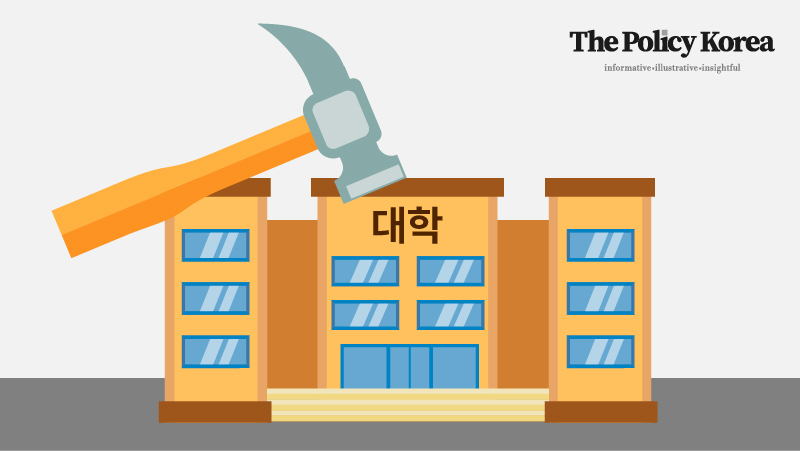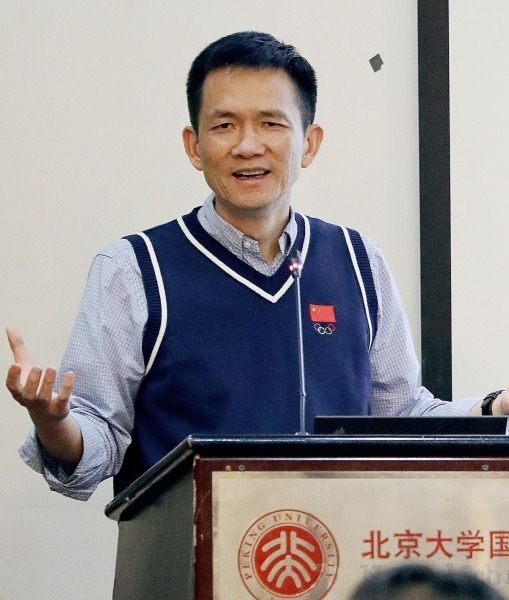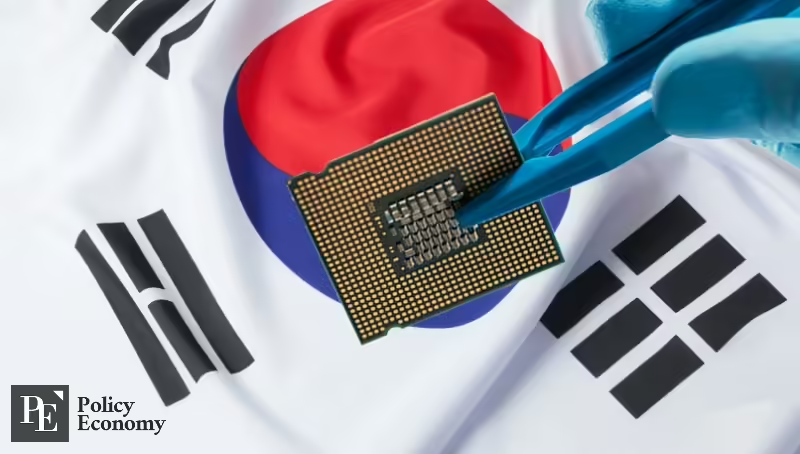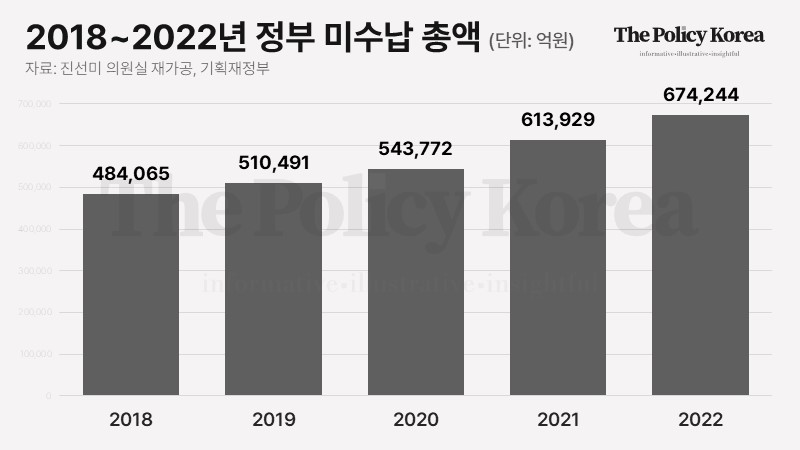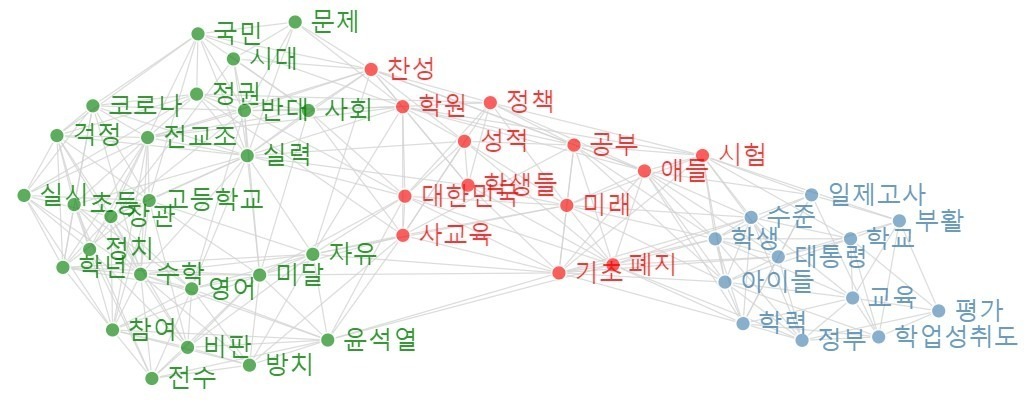[동아시아포럼] 내년 2월로 예정된 ‘제13차 WTO 각료회의’에 주목하는 이유
2024년 2월, WTO 13차 각료 회의 예정, 최근 무역 분쟁 다뤄질 전망 미-중 갈등 악화에 따른 보호무역주의 득세 막아야 된다는 절박감 공유 미국, 중국, EU, 일본의 합의 이끌어 낼 수 있을지도 주목
[동아시아포럼]은 EAST ASIA FORUM에서 전하는 동아시아 정책 동향을 담았습니다. EAST ASIA FORUM은 오스트레일리아 국립대학교(Australia National University) 크로퍼드 공공정책대학(Crawford School of Public Policy) 산하의 공공정책과 관련된 정치, 경제, 비즈니스, 법률, 안보, 국제관계에 대한 연구·분석 플랫폼입니다. 저희 폴리시코리아(The Policy Korea)와 영어 원문 공개 조건으로 콘텐츠 제휴가 진행 중입니다.
세계무역기구(WTO)가 오는 2024년 2월 13차 각료회의(Ministerial Conference)를 아랍에미리트 아부다비에서 개최할 예정이다. 전문가들은 미-중 갈등으로 인한 무역 분쟁이 심화되고 있는 만큼 논의 사항이 방대할 것으로 예측하면서도 합의를 도출하기는 쉽지 않을 것으로 내다본다.
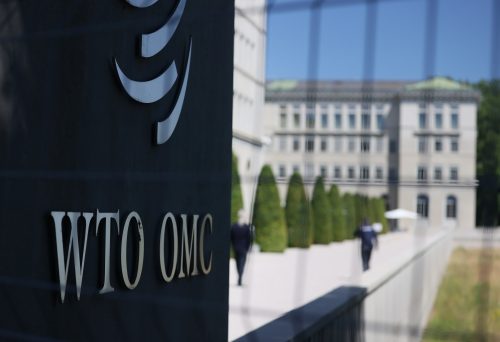
응고지 오콘조-이웨알라(Ngozi Okonjo-Iweala) WTO 사무총장은 이번 13차 각료회의의 토론 주제로 △식량 안보 △어업 보조금 관행 △무역 분쟁 논의 △합의 체제 개혁 △지적재산권 및 이커머스 분야 등을 채택했다. 12차 회의에서 논의됐던 사항을 완성하고 13차 회의가 미래지향적인 결론을 얻는 데 필수적인 사항이라는 이유에서다.
13차 각료회의의 논의 주제들
이에 전문가들은 각 주제들에 관심이 집중된다는 점을 인정하면서도 동시에 문제 해결이 간단치 않을 것으로 전망한다.
주요 주제로는 빈(貧)국들의 구매력 문제에 대한 지적, 어업 보조금에 대한 WTO 합의 확대, 후진국 지위에서 벗어난 국가들에 대한 지원 문제들이 꼽힌다. 이어 WTO 내부의 항소기구가 그간 노골적으로 지적해 온 미국의 주요 무역 관련 판결도 논의될 것으로 보인다. 이 중에는 ‘특허의 역설(The patents paradox, 특허 보장이 되레 혁신을 방해한다는 주장)’, 디지털 무역 확대를 위해 데이터 보안 및 데이터 접근성을 어디까지 허용해야 하는지에 대한 논의가 쟁점이 될 전망이다.
다만 미-중 갈등이 확대되면서 그간 WTO가 공고히 해 왔던 자유주의 무역 체제가 붕괴될 위험에 처해있다는 점은 이번 13차 각료회의가 풀어내야 할 과제 중 하나다. 특히 최근 들어 수출입 및 정부 보조금이 무역 확대가 아니라 군사, 안보 등의 다른 목적을 위해 작동하는 경향이 심화되고 있기 때문이다. 지난 2009년 이래 G20 국가 간 무역 제한 사항들이 무려 10배나 증가한 것이 가장 확실한 근거다.
‘무역 무기화’에 담긴 4가지 목적
전문가들은 ‘무역 무기화(Trade weaponization)’의 근거로 4가지 목적을 꼽는다.
첫째, 군사 행동을 제재하기 위한 목적에서 무역이 축소될 수 있다. 실제로 러시아의 우크라이나 침공은 전 세계 식량 공급에 심각한 악영향을 끼치고 있다. 둘째, 반도체 사례에서 보듯이 자기 의존성을 강화하기 위해 글로벌 가치 사슬을 무기화할 수 있으며 셋째, 미국 트럼프, 바이든 행정부가 철강 및 알루미늄 수입에 보복 관세를 매긴 것처럼 자국 산업 보호를 위해 무역을 차단한 사례도 있다. 마지막은 주변 환경 및 공공 건강 보호를 목적으로 자국 내 과학 기술 발전을 지원하는 것으로, 태양열 발전 도구 수출을 차단하거나, 코로나19 대응 백신 및 진단 키트 수출 차단 등이 최근 사례에 해당된다.
다른 군사 전략적 목적에 따른 무역 무기화가 가속화한 가장 큰 이유로 전문가들은 자유 무역 및 투자 국경 철폐가 실질적으로 각국에 이득이 됐는지에 대한 물음표가 확산되고 있기 때문이라는 지적을 내놓는다. 과거에는 보호무역주의를 강조하는 좌파 세력에게서만 공유되던 사고가 최근 들어서는 우파 포퓰리즘 주의자들에게도 공감대를 얻고 있다는 것이다. 이번 13차 회의가 12차 회의의 성과를 지키고 지속가능한 자유 무역 시스템으로 성장하기 위해서는 무역 무기화에 대한 대안 및 무역 분쟁 문제가 심각하게 논의돼야 한다는 주장이 나오는 이유다.
무역 무기화에 대한 대응 전략
가장 중요한 요소로 지적되는 부분 역시 이번 13차 회의 후에도 여전히 무역 제재를 유지할 수 있는 외교적인 당근을 유지해야 한다는 점이다. 이어 국가 이기적인 자기 의존성이 아니라 안정적인 국가 정책 시스템을 통해 공급망 문제에 대응할 수 있어야 한다는 주장도 있다. 무역 전문가들은 ‘리쇼어링(Re-shoring, 생산비·인건비 절감 등을 이유로 해외로 나갔던 기업들이 자국으로 돌아오는 현상)’ 및 ‘우방국-쇼어링(Friend-shoring, 전제 국가 대신 인근의 우방국으로 해외 이전지 결정)’ 등을 사례로 꼽는다.
무력에 의한 직접적인 제재보다 WTO의 다자 간 협력을 기반으로 한 자유무역 확대가 가능하도록 시스템이 구축돼야 WTO 합의를 깨고 보호무역으로 이탈할 가능성을 낮춘다는 주장도 나온다. 무역 제한으로 총질을 해대는 것보다 공공 보건을 위해서 장기적으로 협력하는 것이 더 이득이 되는 시스템을 만들어야 한다는 것이다.
무역 무기화를 차단하기 위한 또 하나의 방편으로 현재의 불만 사항이 토론의 장에서 공유돼야 한다는 지적도 있다. 개방 무역의 피해국들이 피해를 최소화할 수 있는 시스템을 구축하는 한편, 기술 변화에 적절히 대응해 개방이 더 합리적인 선택이 되도록 이끌어내야 한다는 것이다. 무역 무기화가 양국 모두에게 피해가 된다는 지적도 있다. 실례로 미국 철강 구매자들은 트럼프 대통령 시절부터 현 바이든 대통령 임기까지 부과되고 있는 철강 관세 탓에 노동자 1인당 연간 65만 달러(약 8억7천만원)의 추가 비용을 감수해야 하는 실정이다.
합의 체제 개혁
이번 13차 회의에서 전문가들이 가장 중요하게 생각하는 주제는 단연 합의 체제에 대한 개혁이다. WTO 분쟁 조정 체제가 정상 작동하기 전까지는 무역 무기화를 막는 데 한계가 있다는 것이 공감대를 얻고 있기 때문이다. 특히 일방적인 무역 보복이나 자국 안보라는 핑계로 관세무역일반협정(GATT) 21조의 무역 제재를 부과하는 경우들이 지적됐다. 미국과 중국이 조금씩 양보할 경우에 13차 회의 중에 충분히 합의점에 도달할 것이라는 관측이다. 이어 자유 무역 강화가 G20 정상들의 책임 소재인 것은 분명하나, 미국, 중국, EU, 일본의 합의가 가장 중요하다는 점도 꼽혔다.
아울러 무역 제재에 따른 경제 성장 저하가 가시화된 점도 지적됐다. 지난 2022년 무역 분쟁으로 인한 무역량 감소는 약 2.7%였으며, 2023년에는 1.7%로 예상된다. 이번 13차 회의가 실패할 경우 지난 30년간 쌓아 올린 무역 자유화가 붕괴될 가능성이 높다는 지적과 함께 코로나19 팬데믹이 재발할 경우, 기후 변화에 따른 주거 및 식량 문제가 가시화될 경우, 국제적인 협조를 이끌어내기 어렵다는 점도 언급됐다.
MC13 success critical to the liberal trading order
The World Trade Organization (WTO) will hold its 13th WTO Ministerial Conference (MC13) in Abu Dhabi in February 2024. There is much at stake and success is not guaranteed.
WTO Director-General Ngozi Okonjo-Iweala has identified the key areas that will require close attention if MC13 is to succeed and fulfil the promises of the 12th WTO Ministerial Conference (MC12) — food security, fisheries subsidy disciplines, the development dimension of trade, dispute settlement reform, intellectual property rights and e-commerce.
Each of these topics warrants attention — and each raises difficult issues.
Key issues include addressing purchasing power difficulties of the poorest communities, gaining additional acceptance of the WTO Agreement on Fisheries Subsidies and helping countries that lose support as they graduate from Least Developed Country status. Other issues include addressing the US conviction that the WTO Appellate Body jurisprudence is openly hostile to trade defence instruments, resolving the paradox of patents and meeting the twin goals of data security and data access in the promotion of digital trade.
But there is an overriding challenge facing MC13. The liberal trading order is under siege as world trade becomes increasingly weaponised through targeted government interference, with imports, exports and state-funded subsidies all utilised in the pusuit of other goals. The evidence is clear — the stockpile of G20 trade restrictions has grown more than tenfold since 2009.
There are four interlinked motivations for using trade as a weapon when pursuing other objectives
First, trade can be curtailed to sanction aggression — notably in the case of Russia’s aggression against Ukraine which has caused major collateral damage to international grain supplies. Second, to arm the global value chain to increase self-reliance, particularly in semiconductor production. Third, to execute trade remedies in self-defence, as with the Trump and Biden administrations’ penalty tariffs on imports of steel and aluminium. Fourth, to ‘serve’ science in the interests of the environment and public health, whether through restrictions on trade in key solar energy components or the US$122 billion export restrictions on COVID-19 treatment products.
Crucially, the weaponisation of trade for other purposes has been made possible by a pervasive questioning of the gains from international trade and investment — not only by traditional sceptics on the left but also, now, by the populist right.
For MC13 to build on the promise of MC12 and lay solid foundations for durable progress, it is imperative that in addition to addressing the key challenges identified by WTO Director-General Okonjo-Iweala, alternatives to trade weaponisation are sought and that the discontents of trade are seriously addressed.
In the lead up to MC13 and beyond, this means pursuing the need for diplomatic carrots to accompany the sanctions stick. It is also essential to build resilience in supply chains through sound domestic policy instead of increased self-reliance, such as in the form of re-shoring and friend-shoring. Critical for the continuation of the liberal trading order are multilateral WTO remedies to rulebreaking instead of power-based penalties in the name of national sovereignty, and direct action on environment and public health goals instead of the blunderbuss of trade restrictions.
But to restrain the damaging subordination of trade policy to other ends, governments must also address the discontents of trade. Governments should do more to help the losers of trade opening, adjust to technological change and make the case for open markets — not least by showing how trade weaponisation brings harm to both the user and the target. For example, US steel consumers now pay an estimated extra US$650,000 per year for every job saved by Trump-era penalty tariffs kept by the Biden administration.
No item on the MC13 agenda is more important than dispute settlement reform. Without full restoration of the WTO dispute mechanism, it will be extremely difficult to restrain the use of the trade weapon — whether by unilaterally breaching bound tariffs or by unjustifiably invoking General Agreement on Tariffs and Trade Article 21 to restrict trade in the name of ‘essential security interests’. With just a modicum of flexibility, particularly from the United States and China, dispute settlement reform should be a feasible deliverable at MC13.
While responsibility for strengthening the trading system rests with the leaders of the G20, it is ultimately in the capitals of the major traders — in Washington, Beijing, Brussels and Tokyo — that the fate of MC13 will be determined.
The danger of restrictions on trade is real. Growth in the volume of world merchandise trade is expected to fall from 2.7 per cent in 2022 to 1.7 per cent in 2023. And the stakes are high. Failure to strengthen the trading system and the liberal order that underpins it will put three decades of growth and development made possible by globalisation at risk, and the ability to successfully deal with the next pandemic and the climate transition.
원문의 저자는 현재 영국 런던정경대(London School of Economics and Political Science)의 방문 연구원으로 재직 중인 켄 헤이든(Ken Heydon)입니다. 헤이든 연구원은 호주 무역국 및 OECD 각료 이사회 위원을 지낸 바 있습니다.



